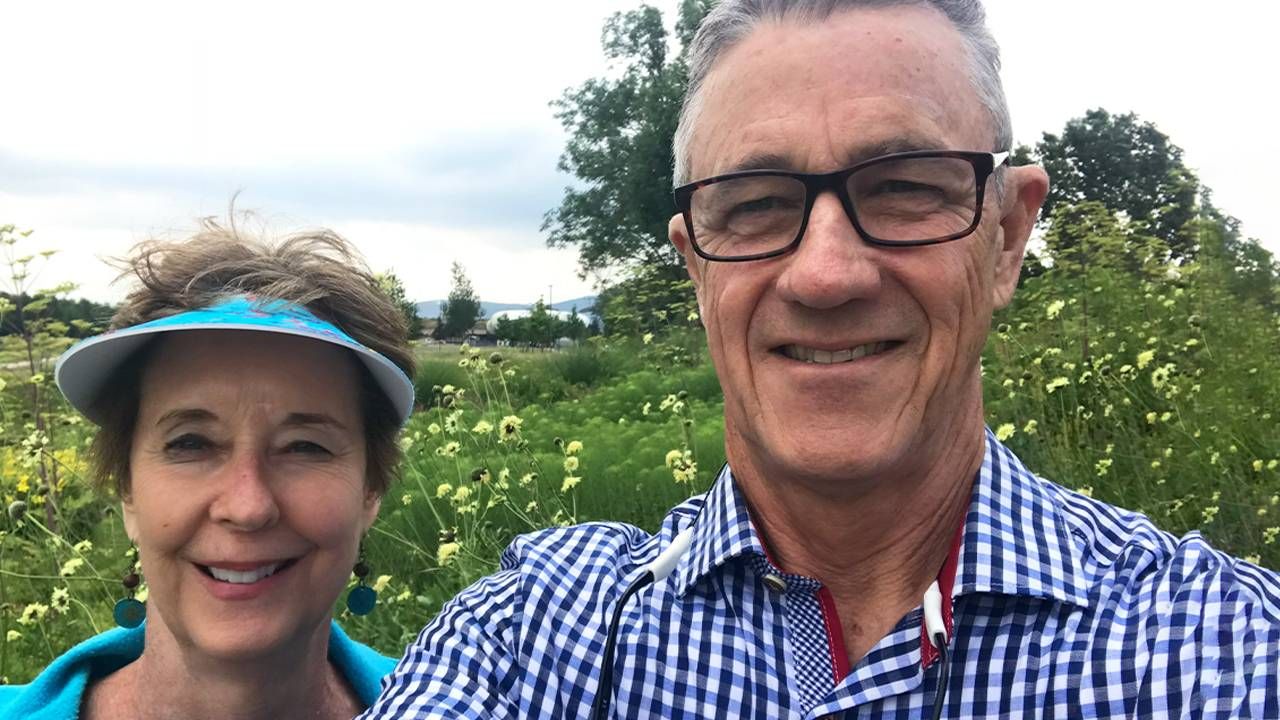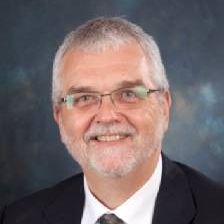The Gift of a Living Organ Donation
A brother's kidney donation to his sister changed her life
Dedrick Burch is in his early 70s, and in his words, "as I always say, my much younger sister (by three years)," Beverly Pierce, are living organ donor/recipient siblings.
Pierce was living with polycystic kidney disease. By 2008, the disease had significantly advanced to the point that dialysis or a kidney transplant were imminent.

"She is a good Southern woman (the siblings live in the Atlanta area) and was pretty stoic about it. She didn't ask us for a kidney, but as a close family, we knew what was ahead and what the options were," said Burch. "If she were placed on a general transplant list, it could have been five years before a kidney was available."
"She didn't ask us for a kidney, but as a close family, we knew what was ahead and what the options were."
Pierce continued the story. "Dedrick got tested; we were nearly a perfect match. He was willing and able to become my living donor, which was a blessing to me."
The process moved quickly. Over the course of the next several months, the siblings were prepared for the donation and transplant.
"There was an extremely thorough assessment. I met with a psychologist and another professional — I don't remember his discipline — to ensure that my emotional health was stable, that the donation was voluntary and without coercion, and that no money had been exchanged for the kidney," said Burch.
Insurance benefits were coordinated. The donation, transplant, and follow-up testing and care were completely subsidized through Pierce's employer-based insurance coverage.
On the day of the transplant, Burch and Pierce were admitted to an Atlanta hospital. Burch's kidney was removed and immediately transferred to his sister. He remained in the hospital for two or three nights, he said.
"The surgeon was pleased with the results. He came to see me after the operation and said, 'You are going to feel like a truck hit you for a day or so. Then recovery will follow at a steady pace,'" said Burch. "He was right. My body was able to accommodate to the loss of the kidney without any kind of serious adverse impact. I was out of work for a month, at the physician's direction, but didn't need to be. I bounced back quickly and easily."
Pierce was a hospital patient for several days longer than her brother. She was discharged without incident and said, "His kidney has been working for me ever since."
Within weeks, both returned to their typical activities of daily living.
Now 16 years post donation and transplant, the siblings speak of "amazing results."
Pierce reports that "I've had no rejection episodes, which is remarkable. These types of episodes are expected as a part of the transplant process, and they just have never happened with me."
She takes a daily regimen of immunosuppressants, as do all transplant recipients, and has been carefully attended through the COVID pandemic because of her immune vulnerability.
"I've changed my eating habits, particularly with the amount of protein I ingest. Dedrick and I have both become 'sort-of' vegetarians," said Pierce. "We don't have to be strict but are careful about food choices. Since he retired, Dedrick has become quite a sophisticated chef."
Now in the spring of 2022, Pierce is preparing for her son's wedding. Burch is bicycling across Portugal, volunteering for an Atlanta social service agency, and taking cooking lessons.
As Pierce says, "All is good."
Can I Be a Donor?
While most organs are harvested from deceased individuals, living donors can give a kidney, a part of the liver, or another type of tissue as a lifesaving transplant.
Organs from living donors have several advantages over organs from deceased donors. Recipients often spend less time waiting for an organ because they actively have recruited a live donor. Expenses for the donor are typically subsidized by the recipient's insurance.
Surgery can be scheduled in advance, giving everyone breathing room and time to prepare. Because the donor organ is working until moments before transplantation, long-term outcomes are improved, and recovery times shortened for the recipient.
"Dedrick gave me an invaluable gift for which I'll always be grateful."
Living donors are often related to the recipient, as was the case for Burch and Pierce. The increased likelihood of genetic matching tends to reduce the odds of organ rejection. Living donors must be at least 18 years old and are usually no older than 65 for a kidney, or 60 for a liver.
Donors undergo extensive physical and mental health evaluation to rule out underlying medical and psychological issues. An informed consent process ensures that the donor fully understands risks and benefits of donation, is not coerced into volunteering, and understands the personal, emotional, and social impact, particularly in the months following donation.
There are several ways to donate. Each year, Donate Life America helps raise awareness about organ donation and encourages Americans to register as organ and tissue donors. A directed donation is a gift of an organ to a relative, spouse, friend or unrelated person in need. There must be a physiological match with the recipient, specifically that blood and tissue types are compatible.
Some individuals, called Good Samaritan Donors, donate to a medically compatible stranger. A third type, known as a paired donation or organ exchange, allows two or more pairs of living donor/recipients to "swap" donor organs. Transplant centers connect incompatible pairs, ensuring that each recipient receives a compatible organ.
Becoming an Organ Donor
Living donation allows individuals to have a second chance for an enhanced quality of life. As the world progressively re-opens in the post-pandemic world, there is an increased need for organ donation.
Pierce says, "Take the opportunity. I was so impaired and making it through an ordinary day was difficult. I could do it, but could tell that I was sinking. Dedrick gave me an invaluable gift for which I'll always be grateful."
"It was a fairly easy decision after we learned that we matched on four of the six markers saying my kidney would give her back a good life," said Burch.


